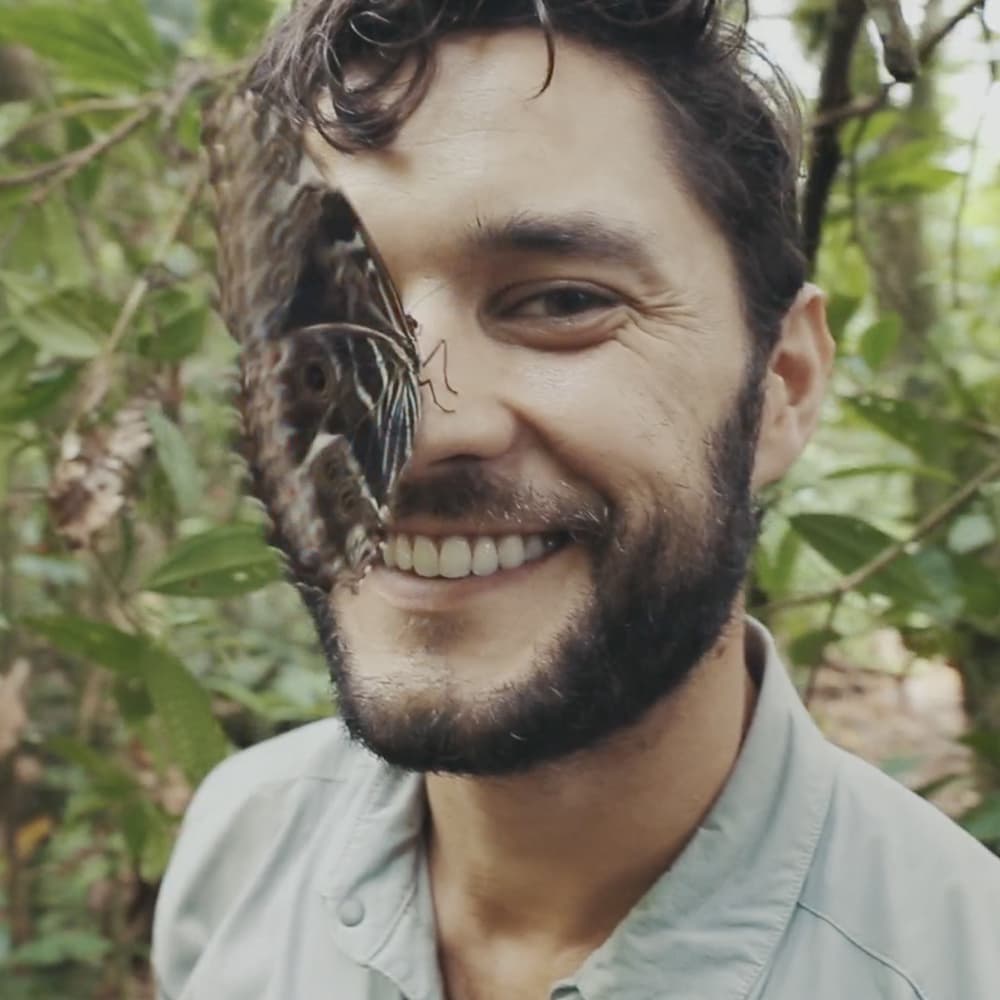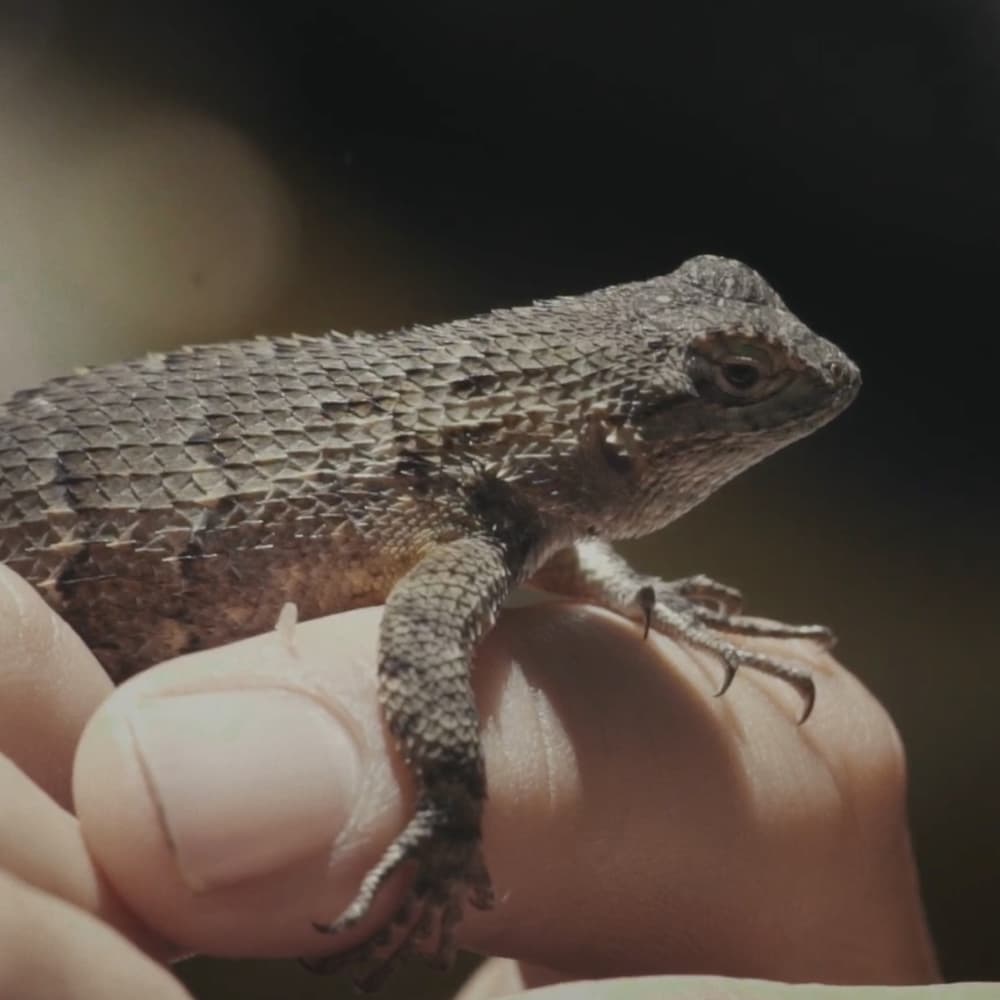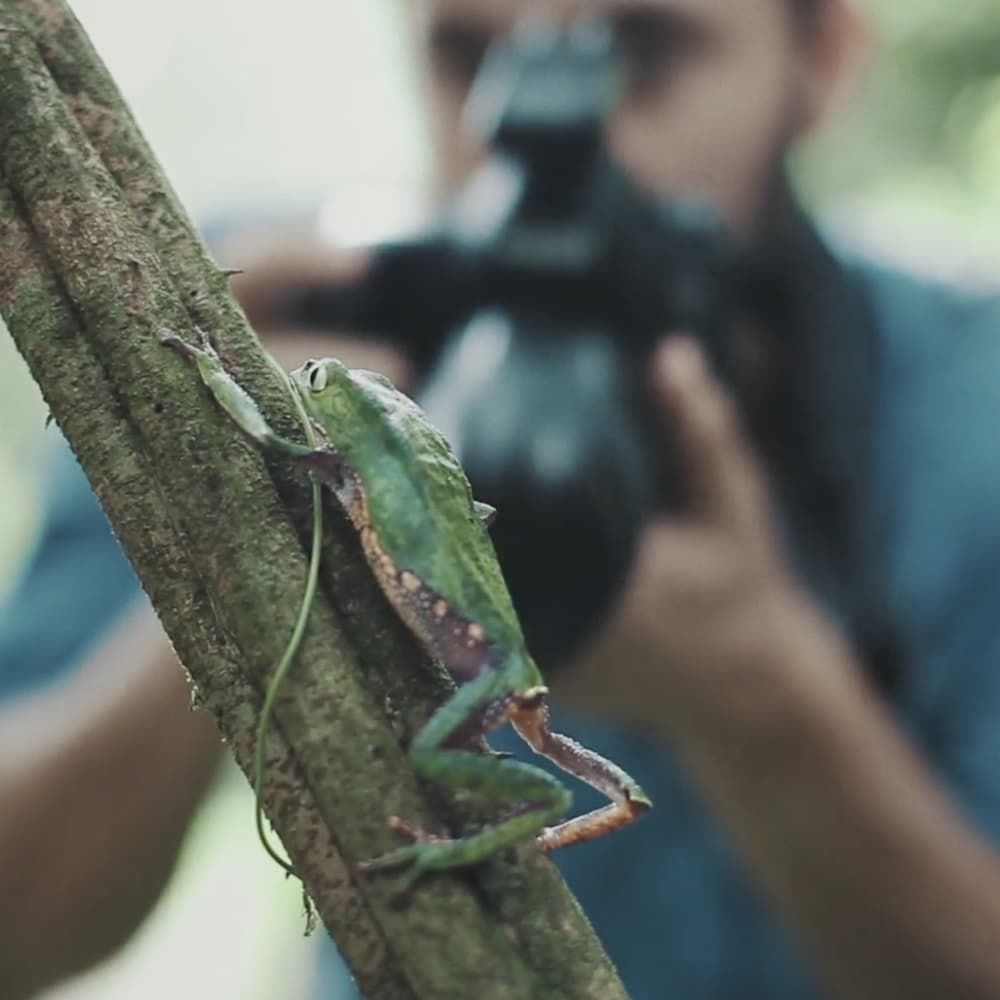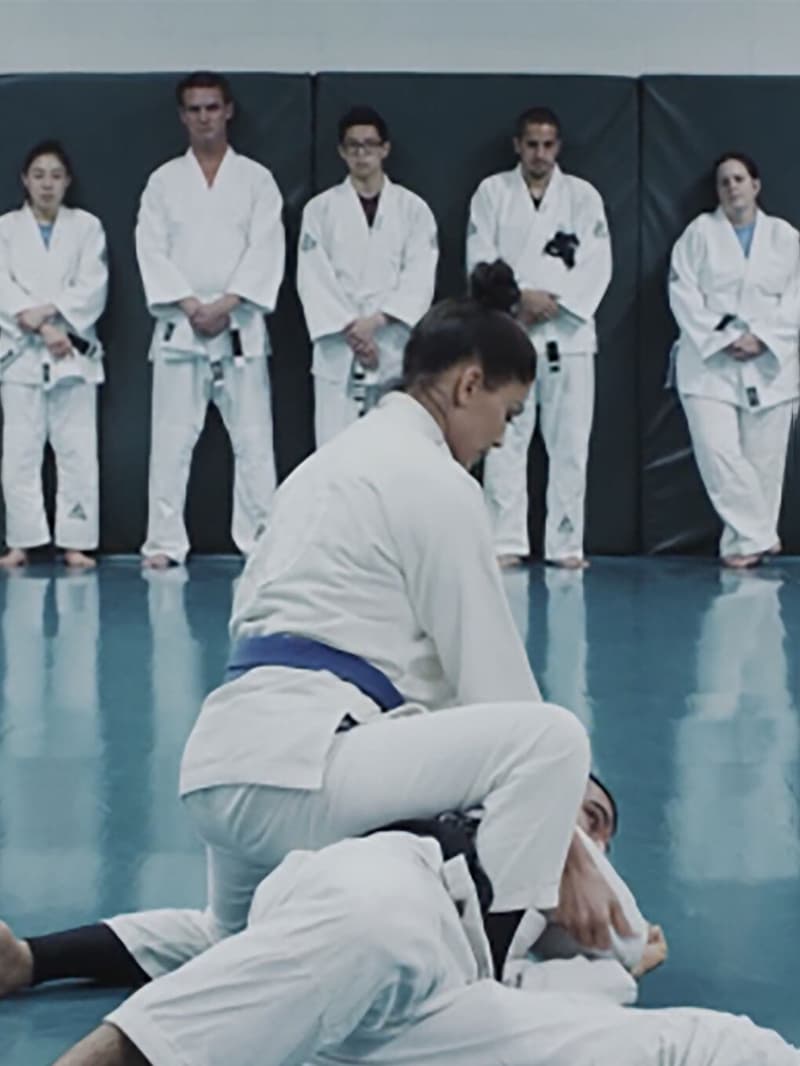Meet Entomologist Phil Torres
Hi, I’m Phil Torres, an entomologist. My work allows me to travel the world, studying different organisms, and keeping a keen eye on the life that’s all around us. Visian ICL allows me to keep my work in focus.
Hi, I’m Phil Torres, an entomologist. My work allows me to travel the world, studying different organisms, and keeping a keen eye on the life that’s all around us. Visian ICL allows me to keep my work in focus.
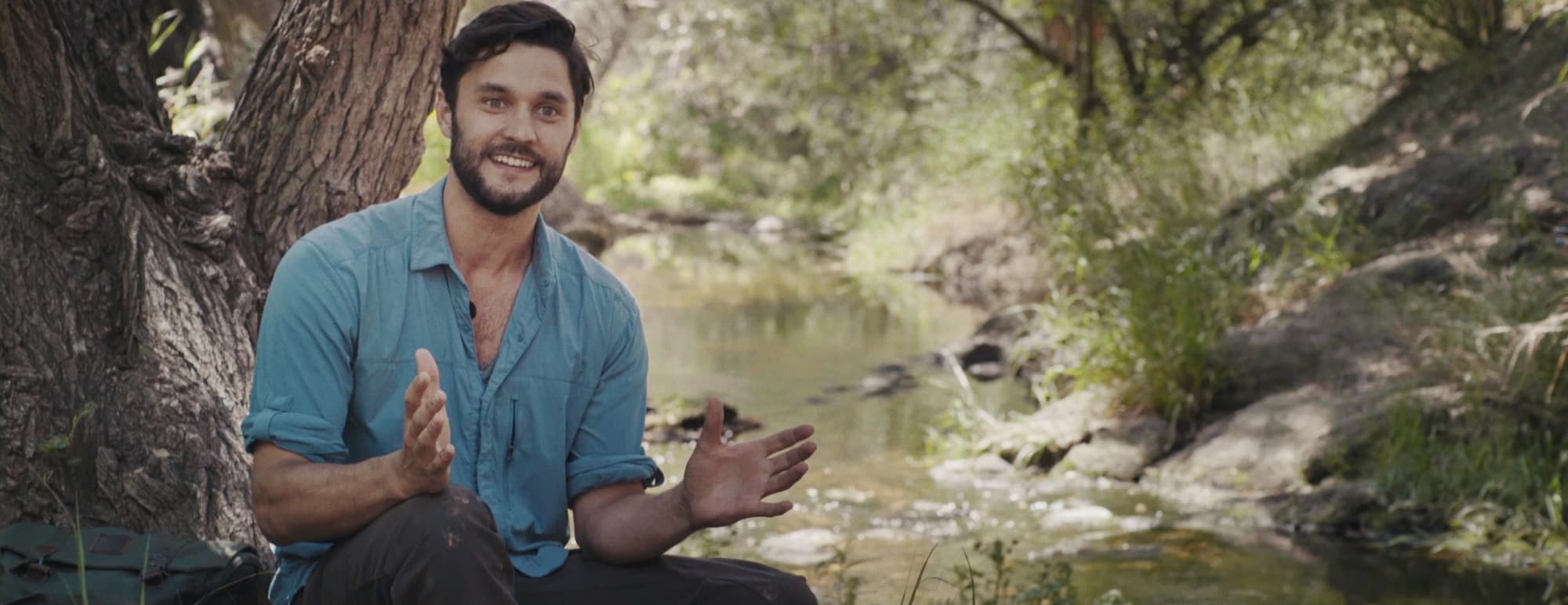
What led me to Visian ICL
My mom told me I had magic eyes as a kid and that I had this ability to just see things other people were missing. In the fifth grade, I began getting headaches and I needed glasses or something. As a biologist, there was this uncertainty that I had that what if a contact lens falls out when I'm in the wilderness? What am I going to do?
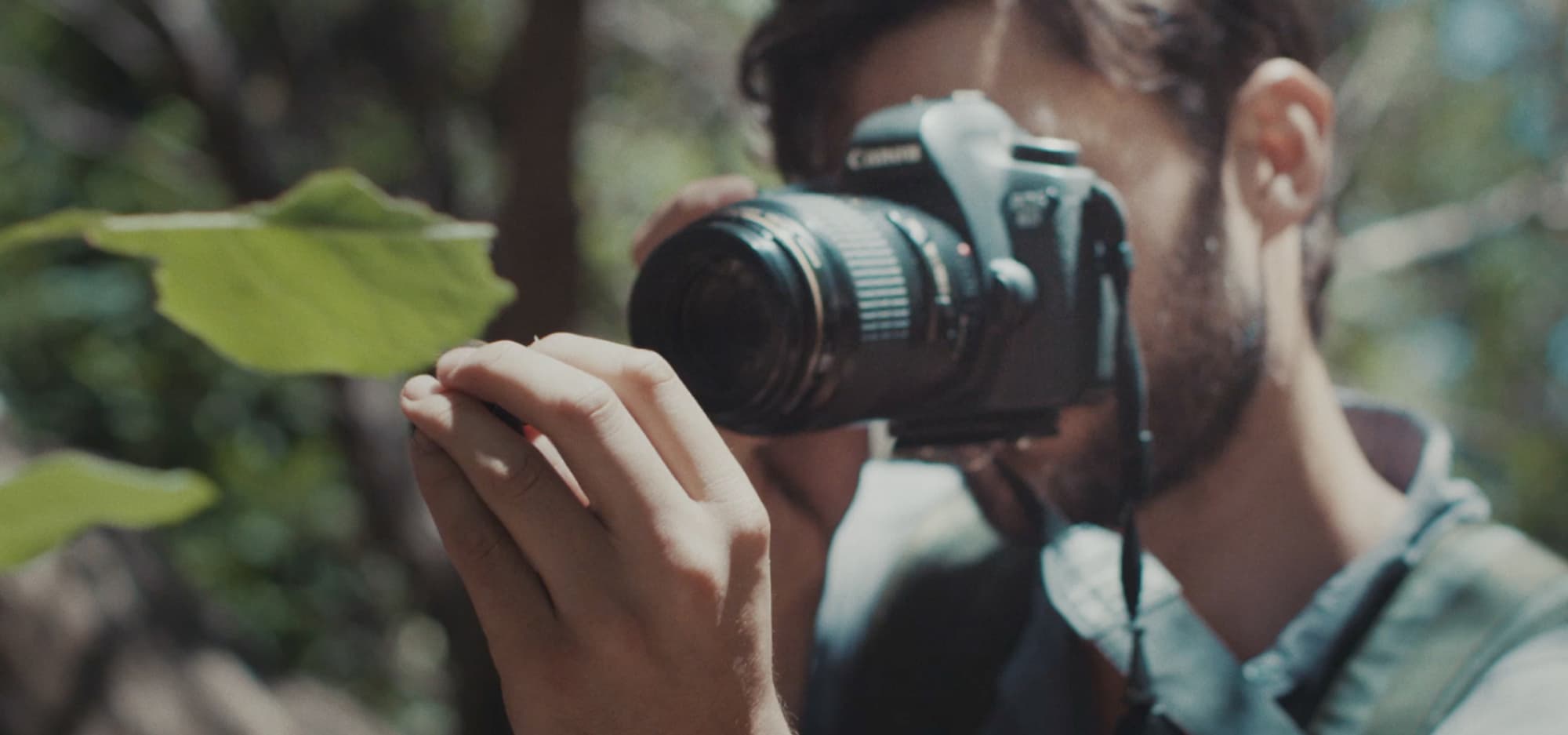
Phil’s day-to-day & where Visian ICL helps most.
Entomology
Clear headed in the field
Night vision
Navigating in the rain forest
“I had my first opportunity to put my Visian ICL eyes to the test recently in the Amazon rainforest, and it couldn’t have been more exciting to be able to spot rare species better than I have my entire life.”
As a biologist, the difference between making a new discovery can come down to how well I can see. I had my first opportunity to put my Visian ICL eyes to the test recently in the Amazon rainforest, and it couldn’t have been more exciting to be able to spot rare species seemingly better than ever. Not only was I seeing certain things for the first time ever, but I felt like I was seeing the world better than I ever had before.
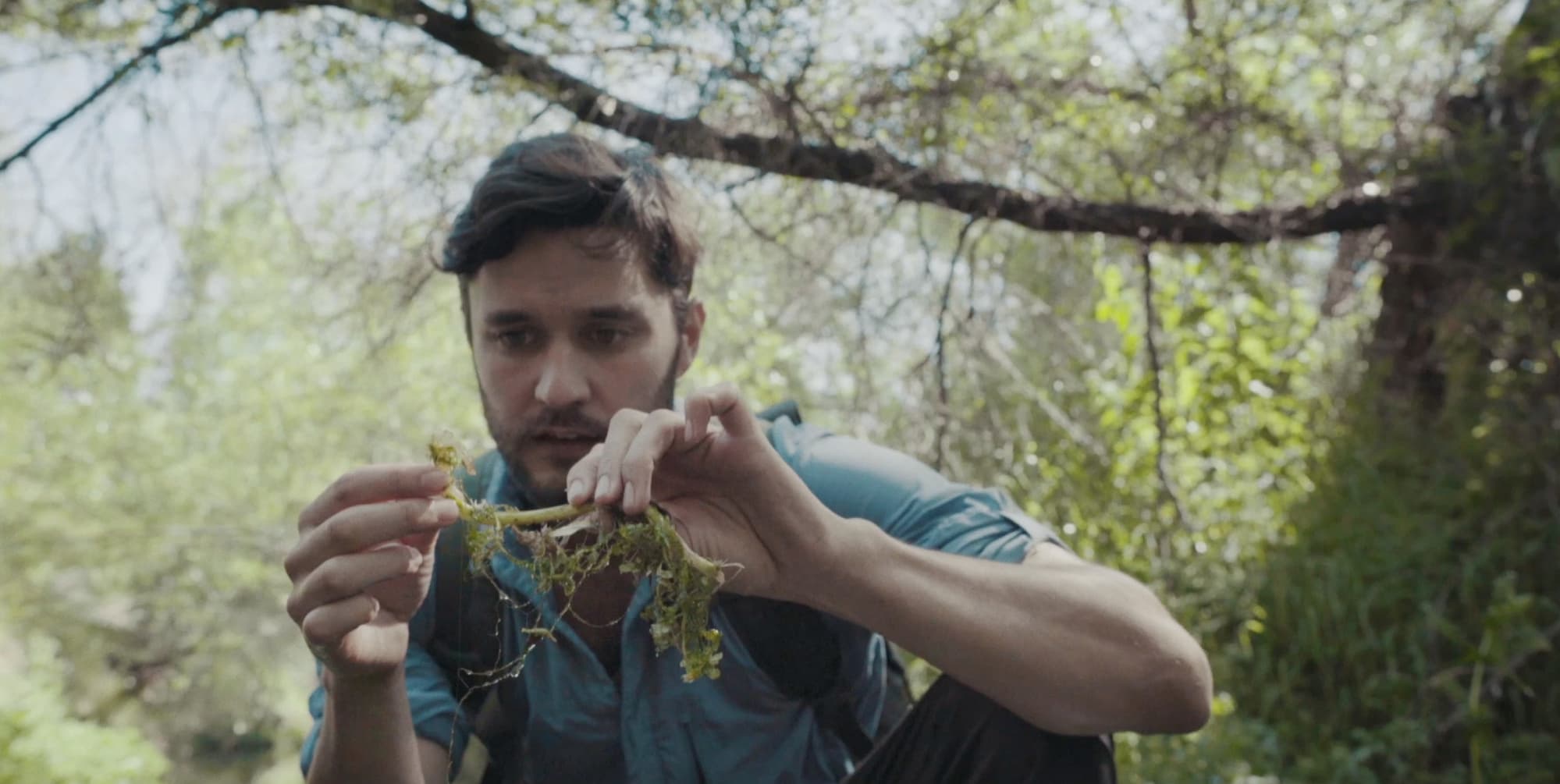
Questions with Phil
What do you do for a living?
I’m an entomologist, my eyes are a critical tool for the work I do as I am constantly studying these tiny organisms that are sometimes as small as a grain of salt.
How long have you had problems with your vision?
I started noticing that I needed glasses when I was in 5th grade when I started getting headaches every day. I thought it was just something I had to deal with, but later realized it was related to my vision.
What’s your biggest pain point about contacts or glasses?
When I was wearing contacts, my eyes were always so dry. It was only after Visian ICL that I realized that the irritation was from constantly having something on my eye.
What about Visian ICL helped make your decision?
One of the things that really stood out to me about Visian ICL over other procedures is the fact that it is removable [by your doctor]. There’s kind of a lot of fear with the other procedures of what if something goes wrong… you’re kind of stuck with it, but with Visian ICL the doctors assured me that this is something that is removable [if needed].
Belangrijke veiligheidsinformatie
De ICL is ontworpen om bijziendheid te corrigeren/verminderen bij patiënten van 21 tot 60 jaar oud tussen -0,5 D tot -20,0 D met of zonder astigmatisme tot 6,0 D en om verziendheid te corrigeren/verminderen bij patiënten van 21 tot 45 jaar oud met verziendheid tussen + 0,5 D en +16,0 D met of zonder astigmatisme tot een maximum van 6,0 D. Uw bijziendheid, verziendheid en astigmatisme moeten minimaal een jaar lang onveranderd zijn voordat u een oogoperatie ondergaat, zodat uw chirurg ervoor kan zorgen dat de voor u meest geschikte ICL wordt gebruikt. Uw zicht kan door een ICL-ingreep verbeteren zodat u geen bril of lenzen nodig heeft. De ICL-ingreep kan niet voorkomen dat u een leesbril nodig heeft, zelfs als u nooit eerder een leesbril heeft gebruikt. De ICL is een alternatief voor andere refractieve ingrepen, waaronder een laserbehandeling (LASIK, laser-assisted in situ keratomileusis), fotorefractieve keratectomie (PRK), chirurgische incisies of andere manieren om uw zicht te corrigeren, zoals met contactlenzen of een bril. Het implanteren van een ICL is een chirurgische procedure en brengt daarom potentieel ernstige risico's met zich mee. Gemelde potentiële complicaties/bijwerkingen die verband houden met algemene refractieve chirurgie: aanvullende ingrepen, cataractvorming, verlies van het best gecorrigeerde zicht, verhoogde druk in het oog, verlies van cellen van het binnenste oppervlak van het hoornvlies, conjunctivale irritatie, acute zwelling van het hoornvlies, aanhoudende zwelling van het hoornvlies, endoftalmitis (infectie van het volledige oog), lichtschitteringen en/of lichtkringen, hyfemie (bloed in het oog), hypopyon (pus in het oog), ooginfectie, dislocatie van de ICL, macula-oedeem, niet reagerende pupil, glaucoom door pupillaire blokkade, ernstige ontsteking van het oog, iritis, uveïtis, verlies van glasachtig lichaam en hoornvliestransplantatie. Voordat u een ICL-ingreep overweegt, moet u een volledig oogonderzoek laten uitvoeren en de ICL-ingreep met uw oogarts bespreken, met name de mogelijke voordelen, risico's en complicaties. Ook moet u bespreken hoe veel tijd er nodig is voor herstel na de operatie.
Selecteer uw regio
Latin America
Referenties
1Patient Survey, STAAR Surgical ICL Data Registry, 2018
2Sanders D. Vukich JA. Comparison of implantable collamer lens (ICL) and laser-assisted in situ keratomileusis (LASIK) for Low Myopia. Cornea. 2006 Dec; 25(10):1139-46.
3Naves, J.S. Carracedo, G. Cacho-Babillo, I. Diadenosine Nucleotid Measurements as Dry-Eye Score in Patients After LASIK and ICL Surgery. Gepresenteerd tijdens de American Society of Cataract and Refractive Surgery (ASCRS) 2012.
4Shoja, MR. Besharati, MR. Dry eye after LASIK for myopia: Incidence and risk factors. European Journal of Ophthalmology. 2007; 17(1): pp. 1-6.
5aLee, Jae Bum et al. Comparison of tear secretion and tear film instability after photorefractive keratectomy and laser in situ keratomileusis. Journal of Cataract & Refractive Surgery , Volume 26, Issue 9 , 1326 - 1331.
5bParkhurst, G. Psolka, M. Kezirian, G. Phakic intraocular lens implantation in United States military warfighters: A retrospective analysis of early clinical outcomes of the EVO Visian ICL. J Refract Surg. 2011;27(7):473-481.


